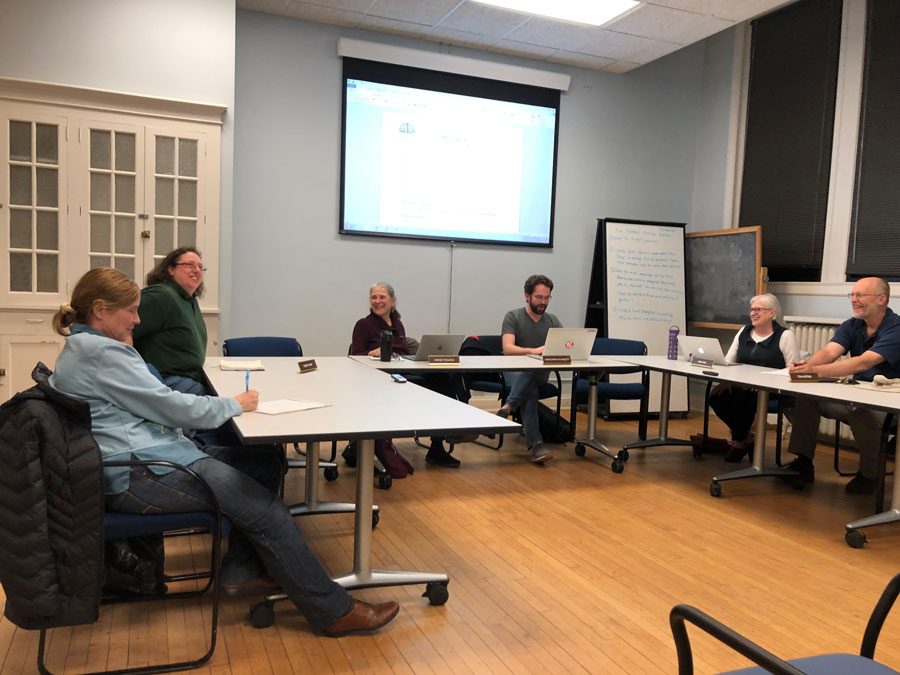Evanston environmental board discusses implementing climate action plan
Henry Rogers/The Daily Northwestern
The City of Evanston’s Environment Board. Board members discuss the implementation of a recently enacted climate action plan.
May 10, 2019
The City of Evanston’s Environment Board on Thursday discussed the continued implementation of the city’s Climate Action and Resilience Plan.
First initiated by Mayor Steve Hagerty, CARP is a climate action plan that seeks to overhaul the city’s current efforts to combat climate change with goals like carbon neutrality and zero waste by 2050. Since the plan was enacted in 2018, the Environment Board has served as a body to discuss the prioritization of the plan’s multiple facets and determine the performance metrics to be used.
“I don’t think we even know yet,” board co-chair Wendy Pollock said of the board’s priorities. “City Council just voted in late December to adopt CARP. We’re just getting to that point.”
Kumar Jensen, Evanston’s sustainability coordinator and the only staff member dedicated entirely to CARP’s implementation, said the city is still developing a draft for the first and second round of the “omnibus approach.”
In a proposal for a 2019 Climate Action Omnibus Ordinance, the “omnibus approach” is described as combining CARP’s regulatory changes for the city with other relevant actions. The approach aims to increase the transparency of the plan’s progress and improve the efficiency of the implementation by taking advantage of the plan’s overlap into the responsibilities of multiple departments.
Without the approach, approved CARP actions would need to be broken into separate bills that would advance through multiple individual committees, according to the proposal.
“It’s definitely a learning curve internally,” Jensen said. “But we’ll learn about what works and what needs to be changed as we go.”
The board also discussed the proposed Environmental Justice Ordinance, which is currently being drafted and has yet to be seen by the board. The ordinance seeks to enforce an equity-centered approach to fighting climate change, Jensen said.
During the meeting, board member Jerri Garl brought up a settlement reached between the city and the operator of its waste transfer station, Advanced Disposal, in which the operator sued the city for imposing fees it claimed were illegal. The city eventually settled the suit, and was allowed keep the $1.26 million in fees collected.
Surplus money from the settlement could be put toward redoing alleys in the area where citizens’ health was impacted by the station, Garl said. The board agreed to table the discussion for a future meeting where a more concrete proposal could be considered.
The board also discussed the development of performance metrics for future climate actions by the city.
While creating performance metrics for the climate action plan, Linda Young, the board’s longest-serving current member, said, “We have goals of full participation and affordability and loads of other things.”
The meeting also considered a “simple recycling” initiative and a potential ban on all gas- and propane-powered lawn equipment. Both initiatives are a part of CARP.
Jensen expressed interest in a board review of the city’s current policies on “simple recycling,” which is the recycling of textiles and other reusable objects through a secondary recycling company. Earlier this year, the City Council rejected a measure seeking to implement a five-year contract for residential soft recycling services following testimony from a Goodwill Industries representative, Jensen said.
The board plans to research performance metrics for CARP in the next month so they can evaluate multiple proposals at the June 13 meeting.
Email: [email protected]
Twitter: @Hen_Rogers


